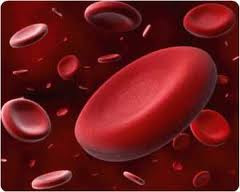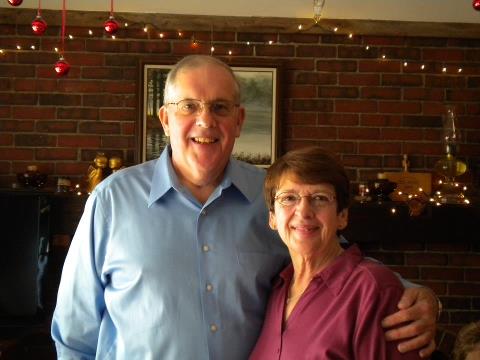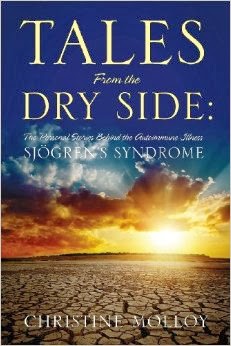“Progress always involves risks. You can’t steal second base and keep your foot on first.”~ Frederick B. Wilcox
https://www.mreavoice.org/d28f9vcmiwq I had been toying with the idea of seeing an integrative medicine doctor regarding my autoimmune issues for over a year. Integrative medicine takes into account the whole person and uses both conventional and alternative medicine as treatment. It focuses on body, mind, spirit, and community rather than just flesh, bones, and organs. It combines conventional medical treatment with complimentary and alternative treatments (CAM). Some of these CAM practices and treatments include dietary supplements, energy healing, clinical nutrition, and detoxification. Integrative medicine focuses on eliminating the cause of the disease rather than just managing the symptoms. Some people see integrative medicine doctors as quacks and some people view them as miracle workers. I know people who have seen them and the reviews have been mixed, although I would say I have heard more positive experiences than negative ones.
https://getdarker.com/editorial/articles/v10wy0c8vms Despite the fact that the autoimmune illness I have, Sjogren’s syndrome, had been unstable for years (except with higher doses of steroids which are a nightmare to deal with), I had put off the idea of seeing an integrative medicine doctor. It wasn’t that I hadn’t dabbled in what I guess would be called alternative medicine, such as acupuncture and massage, but the idea of anything other than standard Western medicine making me healthier seemed foreign to me. Maybe that was due to the fact that I am an RN. I have been trained in traditional medicine and it is all I’ve ever known. However it was becoming clearer to me that perhaps traditional medicine alone was not going to be the answer for me. Not that I was looking for a cure mind you. I had accepted the fact that I have a lifelong chronic illness. But rather, I needed more effective tools and treatment to improve my quality of life because as it was, that quality of life seemed to be going downhill year by year.
https://geolatinas.org/22rezpig2s So this past November I went in to see a doctor at Northampton Wellness Associates here in Massachusetts. The practice is a group of integrative health care practitioners. I will admit, I was skeptical but my skepticism dwindled as I spoke with my new doctor. We discussed my history and a lot of the things he said made perfect sense. For a while now, I have often wondered if my autoimmune problems were triggered by the radiation therapy I had for lymphoma in 1996. I was never a particularly sick child or teen but from 1996 on, one health problem after another crept into my life. I did not share this theory of mine with my new doctor (Dr. L) but he said the same exact thing to me. He thinks that I am genetically predisposed to an autoimmune disorder (my sixty-five year old father was recently diagnosed with one) and that the months of radiation treatments brought out the autoimmune illness. He was quick to point out that this was unavoidable. I had to have the radiation in order to save my life, but now we must also figure out the best way to deal with the end result of that possible trigger.
Purchase Tramadol Online Cheap He also went on to explain that most of the symptoms I experience are autoimmune in nature such as my asthma, migraines, joint pain, allergies, etc. Now I had always thought this and my rheumatologist had made some associations, but the further back we looked into my adult health history, the more I realized how connected all my ailments were. Dr. L also stressed that there may be several other contributing factors to my autoimmune issues such as allergens, environment, diet. etc.
https://guelph-real-estate.ca/29xfe0p0nc We came up with a plan. I agreed to go for allergy testing which would initially be done by blood work. He did warn me that the blood testing for allergies is not always accurate but it is the least invasive preliminary step in the allergy testing process. I ended up testing positive for two different mold allergies that are often found on certain foods and so I am now beginning to attempt to eliminate these foods. Luckily, many of them are gluten or dairy based foods, which I already have eliminated from my diet.
source However my blood allergy testing also did NOT reveal a cat or dog allergy; both of which I know for a fact I have due to traditional scratch test allergy testing I had done years ago. I spoke with the allergy department at the Center and decided to continue on to the next step of intradermal allergy skin testing which I will begin next week. The intradermal skin testing is significantly more reliable. I thought it was important because if there is any chance that allergens (especially to my dog) were contributing to my autoimmune issues, I may want to pursue non-medication treatment for it; specifically allergy injections.
https://penielenv.com/l17i1jji62g Luckily, at this point, my health insurance covers a majority of the costs for Dr. L. My health insurance changed January 1st but at my November visit, I had my regular copays for the doctor visit and the blood work. I have checked with the Center regarding my new insurance which will have the same coverage as my old one, including for allergy shots if I do definitely go that route. However I am aware that there will probably be other suggested treatments that may not be covered by my insurance but my philosophy is to take that as it comes. I am also trying to look at it from the perspective that further treatment may help me eliminate some of my current prescription medication and overall health care costs (think hospitalizations and ER visits) and allow me to cut the cost of these, all of which have skyrocketed.
https://onlineconferenceformusictherapy.com/2025/02/22/n8whscqnf I made it very clear to Dr. L that I did not want to abandon my traditional treatment for the Sjogren’s at this time but yet, my goal was to eventually get off as many of my prescription medications as possible as I was on at least thirteen different prescriptions. That is a ridiculous amount of medication and I felt that I was probably having medication interactions. He was very receptive to this and said we would take it one step at a time. We would start with allergy testing, I would continue to wean off my steroids (which was my plan with my rheumatologist anyways), and he wanted me to start a new medication.
source site The idea of another medication surprised me coming from this type of doctor. It is called low dose naltrexone (LDN) and honestly, it is worthy of a blog entry all by itself. I had never heard of it before and it required a lot of research on my part. It is an “alternative” medication that he routinely prescribes for all of his autoimmune patients as it has been shown to have the capability to regulate the immune system and has had some good outcomes with certain autoimmune disorders. However I have only been on it for a month and am waiting a little longer to see how it continues to work out before I write that blog. The LDN can take a while to see a full effect so we agreed that we would meet again in February and see where things are at.
https://danivoiceovers.com/73n9gkzdmz I liked the fact that Dr. L was treating this as a process and not overwhelming me with a million treatment options all at once because to be honest, I have seven or eight other specialists who are doing a great job at overwhelming me, no matter how unintentional it may be. I will admit, the process is very intimidating for me. I know about all things in traditional Western medicine. I know when to trust what a doctor tells me and I know when a doctor doesn’t know what he or she is talking about. As a nurse, I know about prescription medications (well except for LDN!) but not so much about supplements and herbs. It is certainly a learning process and one that I hope will prove to be beneficial.
enter Am I still a little skeptical? Sure. But I am also skeptical about putting toxic, possibly cancer causing drugs into my body as I have been doing. I am skeptical about dangerous side effects I may have, and have already started to have, from being on steroids the rest of my life. I am skeptical about the quality of life facing me until the day I die. So really, what do I have to lose?




